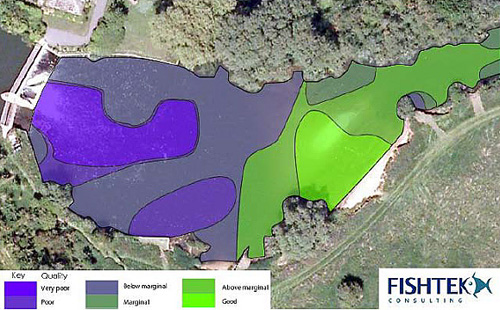In their recent fisheries newsletter the EA Thames West Region report that:
Rushey Weir is one of the 43 weirs on the main River Thames and recent investigations identified that the old Paddle and Rymer weir was in a dangerous state and in urgent need of repair; the weir is now being rebuilt with a new radial gated structure and a new fish bypass channel.
 The weirs, their impounding effect, and the presence of navigation on the Thames all serve to make the shallow gravel habitat found below Rushey Weir important for maintaining fish populations and meeting obligations under the Water Framework Directive. The habitat has been formed and maintained by the operation of the existing Paddle and Rymer weir at the site, which has kept it in good condition for the living
The weirs, their impounding effect, and the presence of navigation on the Thames all serve to make the shallow gravel habitat found below Rushey Weir important for maintaining fish populations and meeting obligations under the Water Framework Directive. The habitat has been formed and maintained by the operation of the existing Paddle and Rymer weir at the site, which has kept it in good condition for the living
memory of all Rushey weirpool anglers.
Inevitably the new weir will change some of the flow patterns in the weirpool. The concern for the project is that it could cause a deterioration in the fish habitat, washing it away or increasing sedimentation on it as the velocities and energy differs. Although the EA don’t think that will happen they have carried out a range of surveys that will create a baseline condition for the weirpool.
These include:
• Routine electric fishing surveys in this reach of the Thames
• Acoustic Doppler Current Profile (ADCP) surveys of the weirpool to assess the flow streams and velocities
• Bathymetry over several years to assess the extent of the gravels
• Habitat mapping of the weirpool to assess the quality and quantity of fish habitat
• A hydromorphological assessment of the weirpool
• Real-time monitoring of water quality in the weirpool to determine whether there was significant siltation as a result of the weir works that might impact on downstream gravels
The plan is for the EA to repeat the surveys after the weir and fish pass are built and have had a chance to settle in. Hopefully results will show that there has been no deterioration – possibly even an improvement but any reduction in quality or quantity will be made good by mitigation or compensation.










